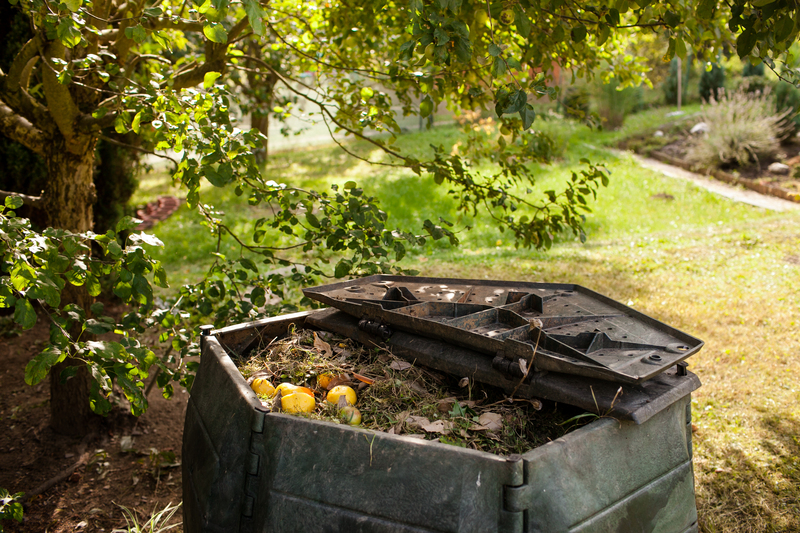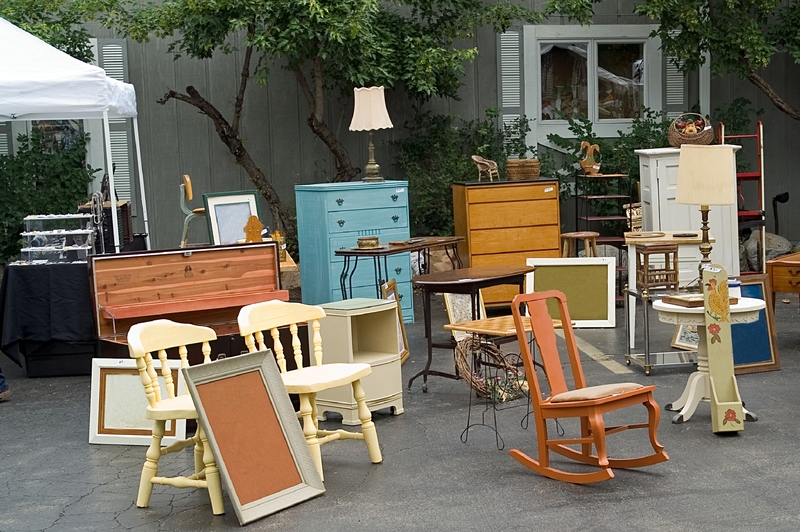Eco-Innovations for Plant Pot Disposal: Leading the Green Revolution
As home gardening and urban agriculture continue to flourish, the question of eco-friendly plant pot disposal grows increasingly important. The horticultural industry, both at consumer and commercial levels, has long depended on plastic pots due to their affordability and convenience. However, the environmental consequences of single-use and non-biodegradable materials have sparked a demand for innovative plant pot recycling and disposal methods. This comprehensive article explores modern eco-innovations for plant pot disposal, covering both sustainable materials and creative upcycling practices, while highlighting options that can reduce your environmental footprint.

Understanding the Environmental Impact of Traditional Plant Pots
It's no secret that the majority of traditional plant pots are made from polypropylene or polyethylene, plastics derived from fossil fuels. While lightweight and cheap, these pots pose several problems:
- Non-biodegradability: Most plastic containers take hundreds of years to decompose.
- Contamination: Residual soil, roots, and fertilizers can make recycling difficult.
- Waste Generation: Millions of pots end up in landfills or as litter each year.
- Recycling Challenges: Not all recycling centers accept plastic horticultural pots due to contamination and mixed resin types.
Eco-innovations for plant pot disposal address these fundamental problems with a blend of material science, creative thinking, and community engagement.
Biodegradable and Compostable Plant Pots: Nature-Driven Solutions
Perhaps the most notable eco-innovation for plant pot disposal is the rise of biodegradable and compostable pots. These alternatives decompose much faster and often add nutrients to the soil.
Popular Biodegradable Pot Materials and Their Benefits
- Coir (Coconut Fiber): Pots made from coconut husk fibers are renewable, sturdy, and break down naturally in garden soil.
- Peat and Wood Fiber: These pots contribute to healthy root growth and decompose into organic matter, enriching the earth.
- Compressed Cow Manure: Some innovative brands create pots from dried cow manure, which serves as a slow-release fertilizer as it biodegrades.
- Rice Hulls and Wheat Straw: Agricultural byproducts form strong, yet compostable containers.
- Paper and Cardboard: Simple, affordable, and easily home-composted, though less durable than other options.
Using compostable pots not only simplifies disposal but also encourages a closed-loop system, returning nutrients to the environment and minimizing horticultural waste.
Plant Pot Recycling Programs: Closing the Loop
For those who prefer traditional pots or already have a collection, plant pot recycling initiatives offer a sustainable disposal route. Many garden centers, nurseries, and even large retailers now operate drop-off programs where pots are collected, washed, and either refilled or melted down to form new pots.
How to Recycle Plastic Plant Pots Effectively
- *Check local regulations:* Not all communities accept horticultural plastics, so verify policies.
- *Clean your pots:* Remove soil, roots, and labels before recycling to prevent contamination.
- *Sort by resin code:* If possible, group pots by plastic type (usually indicated by a number in the recycling symbol).
- *Support participating retailers:* Some national chains have introduced plastic pot collection bins for their customers.
Recycling programs drastically reduce the number of pots sent to landfill, support the circular economy, and encourage manufacturers to develop products with easier recyclability in mind.
Reusing and Upcycling: Creative Eco-Innovations for Plant Pot Repurposing
Disposal doesn't always mean throwing away or even recycling. Many eco-conscious gardeners are embracing the reuse and upcycling of old plant pots, transforming them into new, useful, or decorative objects.
Ways to Repurpose Old Plant Pots
- Seed Starters: Use small pots for propagating cuttings or starting seeds indoors.
- Organizers: Keep tools, labels, or bulbs organized in the shed or greenhouse.
- Garden Markers: Cut plastic pots into strips to make durable plant labels.
- Craft Projects: Decorate and stack pots for fairy gardens or garden sculptures.
- Water Reservoirs: Place old pots upside down in large planters to improve drainage and humidity.
- Donation: Community gardens, schools, and urban farms often welcome donated pots for their own use.
Repurposing is a low-energy, highly sustainable approach that leverages creativity for practical results, firmly aligning with eco-friendly plant pot disposal principles.
Innovative Materials and Circular Plant Pot Design
Some forward-thinking companies are investing in circular design principles for plant pots, focusing on both the materials used and the product lifecycle. Here are some outstanding examples:
Next-Generation Materials for Sustainable Pots
- Bio-based plastics: Derived from corn starch, sugarcane, or potatoes, these pots mimic the performance of traditional plastic but decompose more readily in compost or industrial facilities.
- Recycled plastics: Some manufacturers now produce pots made entirely from recycled post-consumer or post-industrial plastics, reducing raw material extraction.
- Mycelium composites: Grown from mushroom roots, these pots are truly zero-waste and return to soil as valuable organic matter.
By integrating eco-innovative materials in plant pot design, manufacturers are ensuring their products are less dependent on virgin plastic, easily recyclable, and sometimes even nutrients for future plants.
Community and Industry-Led Solutions
Addressing the pot disposal issue at scale requires collaboration between consumers, nurseries, retailers, municipalities, and manufacturers. Key initiatives include:
- Industry take-back schemes: Some large wholesalers and producers offer return-and-refill programs where pots are sanitized for reuse, cutting down on waste.
- Environmental certifications: Look for pots certified by eco-labels, indicating adherence to rigorous sustainability and recyclability standards.
- Municipal collections: Some cities host "plant pot round-ups" or include certain types of horticultural plastics in curbside recycling on select dates.
- Educational campaigns: Promoting awareness about compostable pots, recycling, and upcycling empowers more gardeners to participate in sustainable practices.
These community and industry-driven eco-innovations for plant pot disposal are essential for making a measurable reduction in garden-related plastic waste.
Key Considerations for Eco-Innovative Disposal Choices
When weighing your options for eco-friendly plant pot disposal, keep the following points in mind:
- Material Type: Prioritize biodegradable or recycled materials when purchasing new pots.
- Local Recycling Options: Research what your municipal facility or local garden center accepts.
- Condition of Pots: Reuse clean, undamaged pots whenever possible.
- Compostability: Not all "biodegradable" pots break down easily in home compost--read product instructions carefully.
- Support Closed-Loop Solutions: Share surplus pots with community groups or participate in take-back initiatives.
In making informed choices, every gardener can contribute meaningfully to a greener future and reduce their environmental impact.
Frequently Asked Questions about Eco-Innovative Plant Pot Disposal
What should I do with cracked or broken plastic pots?
Even if pots are damaged, many recycling programs accept them if they are clean and made of recyclable plastic. If recycling isn't available, consider using broken pieces as drainage crock in the bottom of other planters or donate materials for garden art projects.
Are compostable plant pots really better for the environment?
Compostable and biodegradable pots can greatly reduce landfill waste and support a soil-friendly gardening cycle, especially when disposed of properly. Their true sustainability depends on responsible sourcing and disposal practices.
Can I mix different types of plastic pots for recycling?
It's best to sort by resin code when possible. Mixing types can contaminate the recycling stream, making it harder to process.
What if my community doesn't offer plant pot recycling?
Look for garden centers or non-profits that accept used pots. Alternatively, get creative and find new uses for them in your home, garden, or community projects.
Are there compostable alternatives sturdy enough for large plants?
Yes, many compostable pots--such as those made from rice hulls, coir, or advanced bio-composites--are designed for durability with larger container plants and even trees.

Looking Toward a Sustainable Growing Future
As the horticulture and gardening industries evolve, so do the eco-innovations for plant pot disposal that empower everyone to grow greener. From adopting compostable pots to supporting advanced recycling schemes, and embracing creative upcycling, consumers and businesses are reshaping the landscape of garden waste management. By making environmentally friendly plant pot disposal a priority, we sow the seeds for a more sustainable world--one pot at a time.
Whether you're a home gardener, professional grower, or plant enthusiast, you have the power to make a difference through your plant pot choices and disposal methods. Explore local resources, support green innovation, and share your knowledge to help make eco-friendly plant pot disposal an enduring norm.
Conclusion: Making Eco-Innovations for Plant Pot Disposal a Habit
Choosing sustainable plant pots and responsible disposal pathways is more than an environmental gesture--it's a commitment to circular living and mindful stewardship of our planet. By staying informed about the latest eco-innovations for plant pot disposal, we can nurture our gardens and our earth at the same time.
For further reading and up-to-date resources on plant pot recycling, compostable garden containers, and creative upcycling ideas, consult your local garden center, municipal recycling guide, or global environmental organizations. Every little change counts toward a cleaner, greener tomorrow!